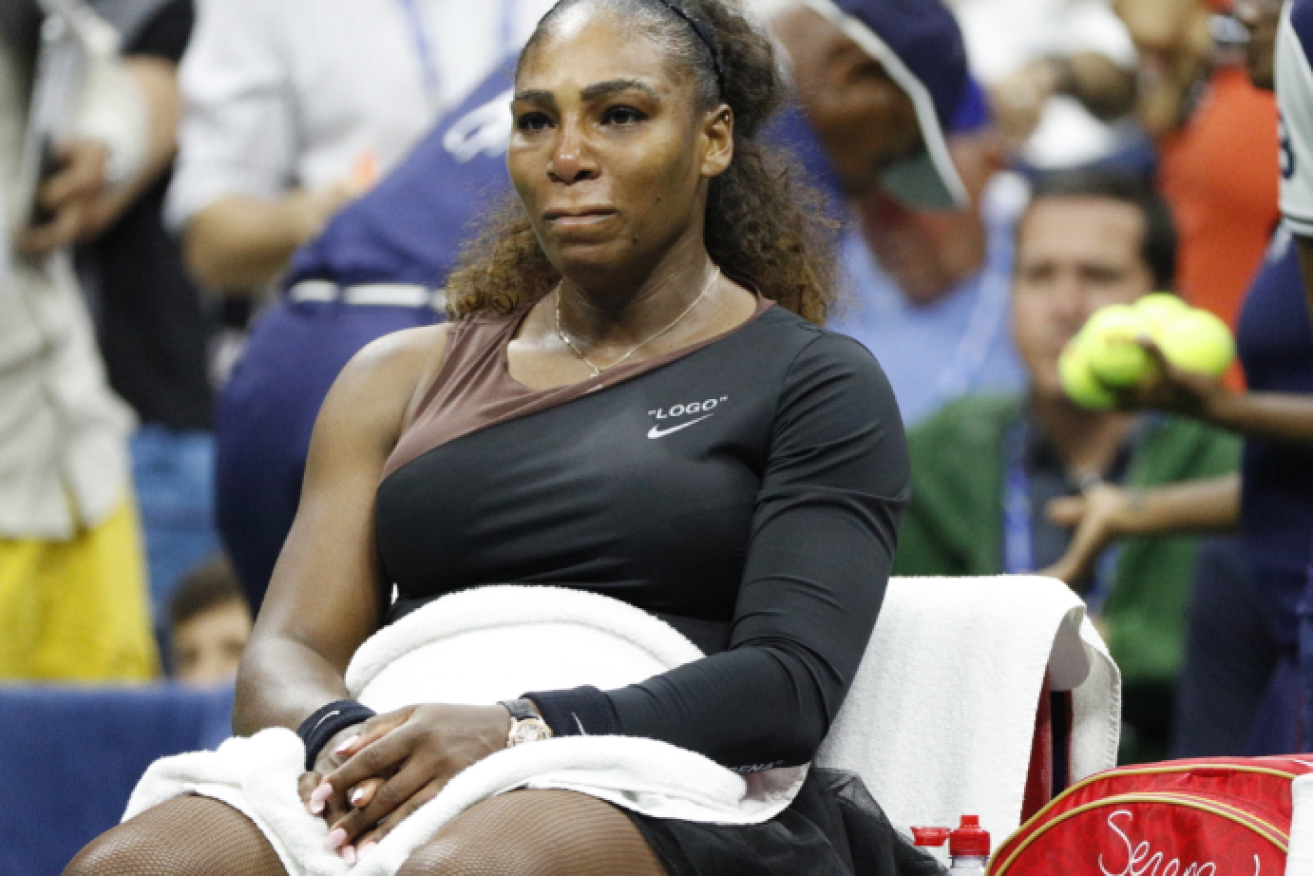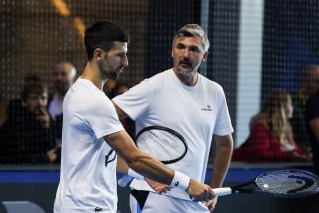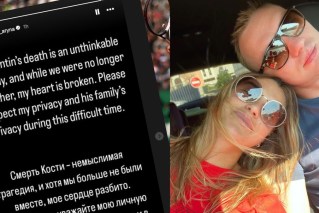Serena’s grand slam snit: How she went from miffed to enraged

Face of fury: If looks could kill this image of a seething Serena Williams would be on wanted posters. Photo: EPA/Justin Lane
The US Open final devolved into farce after Serena Williams found herself at odds with the umpire’s treatment of her.
It took sheen away from 20-year-old Naomi Osaka beating her idol to claim hers and Japan’s first major title, but there were a lot of moving parts.
So, what the hell happened?
First violation: Coaching (warning)

Williams’ response to the initial coaching violation was relatively tame compared to what happened next. Photo: AP/Andres Kudacki
After the first game of the second set, Williams was warned for receiving coaching from her box (coach Patrick Mouratoglou later admitted to ESPN he “was 100 per cent coaching”).
Williams was indignant, telling umpire Carlos Ramos Mouratoglou had only given her a thumbs up and that was not some secret code.
“I know you don’t know that and I understand why you thought that was coaching but I’m telling you it’s not,” she said.
“I don’t cheat to win, I’d rather lose. I’m just letting you know.”
Compared to what was to come, that was pretty chilled out.
Second violation: Racquet abuse (point penalty)

Hard to argue against the violation for racquet abuse. Photo AP/Julio Cortez
While leading 3-2 in the second set, Williams was surprised to hear she was starting the game down 15-0 after receiving a second code violation for smashing her racquet.
She had been docked a point by Ramos in accordance with the International Tennis Federation’s penalty schedule, which says the first code violation is a warning and the second is a point penalty.
The same thing happened to her the during the 2009 US Open semifinal against Kim Clijsters, when she had been warned for smashing a racquet and then penalised a point (which happened to be match point) for threatening a lineswoman who foot-faulted her.
This time, Williams seemed confused as Ramos explained the situation.
“This is unbelievable. Every time I play here I have problems,” she said.
“What? That’s a warning. I didn’t get coaching. I didn’t get coaching. I didn’t get coaching. You need to make an announcement that I didn’t get coaching.
“I don’t cheat. I didn’t get coaching. How can you say that? You need to … you owe me an apology. You owe me an apology. I have NEVER cheated in my life!
“I have a daughter and I stand for what’s right for her and I never cheated. You owe me an apology. You will never do another one of my matches!”
OK. Whoa. But it’s probably over, right?
Third violation: Verbal abuse (game penalty)
While Osaka was preparing to serve with a 4-3 lead, Williams resumed her attack on Ramos from her chair.
“I explained that [I wasn’t getting coaching] to you and for you to attack my character … it’s wrong. You’re attacking my character. Yes, you are,” she said.
“You owe me an apology. You will never, ever, ever be on another court of mine as long as you live. You are the liar.
“When are you going to give me my apology? You owe me an apology. Say it, say you’re sorry.”
No apology was forthcoming.
“Well then don’t talk to me. Don’t talk to me,” she said.
“You stole a point from me, you’re a thief too.”
As ridiculous as it sounds, this is when things got really ugly.
“Code violation. Verbal abuse. Game penalty, Mrs Williams,” came the announcement from Ramos.
Williams laughed but she clearly wasn’t seeing the funny side.

Naomi Osaka did not know what to do with herself as Serena Williams erupted. Photo: AP/Andres Kudacki
“Are you kidding me? Are you kidding me? Because I said you’re a thief? Because you stole a point from me,” she said.
“But I’m not a cheater. But I told you to apologise to me. This is out … Excuse me, I need the referee.”
‘Because I’m a woman, you’re gonna take this away from me?’
Enter tournament director Brian Earley and WTA supervisor Donna Kelso.
While Earley spoke to Ramos, Williams was almost in tears as she defended herself to Kelso.

Williams pleaded her case to WTA supervisor Donna Kelso. Photo: AP/Andres Kudacki
“This is not right. This is not right. I mean, I called him a thief because he stole a point from me because I never cheated,” she said.
“He said I was being coached and I wasn’t being coached. That’s not right. That is not right. You know me, you know my character and that’s not right. This is not fair.
“This has happened to me too many times. This is not fair. This is not fair. To lose a game for saying that is not fair. It’s really not.”
Then to Earley.
“You know how many other men do things that are … much worse than that. This is not fair,” she said.
“There’s a lot of men out here that have said a lot of things and because they are men, that doesn’t happen to them.”
Earley explained that she knew the risk she was taking by abusing the umpire after having already received two violations.
The gender issue
“No, I don’t know the risk because if I say a simple thing — a thief because he stole a point from me — that does not make … there are men out here that do a lot worse,” she said.
“But because I’m a woman, because I’m a woman, you’re gonna take this away from me? That is not right.
“You know it, and I know you can’t admit it, but I know you know it’s not right. I know you can’t change it but I’m just saying that’s not right.
“I get the rules, I get the rules but I’m just saying it’s not right. And it happened to me at this tournament every single year that I play. It’s just not fair. That’s all I have to say. That’s not fair.”

Japan’s Naomi Osaka kisses a trophy that will be forever tarnished by memories of her opponent’s tempestuous tantrum. Photo: EPA/John Mabanglo
Williams powered through her next service game, winning to love, before Osaka showed remarkable composure to serve out the match.
The fury bled into the crowd, which booed during the trophy presentation. Williams called for calm and put her arm around a distraught Osaka, but the damage was done.








